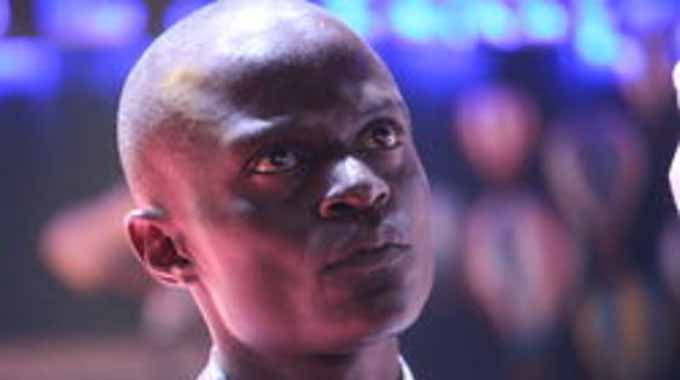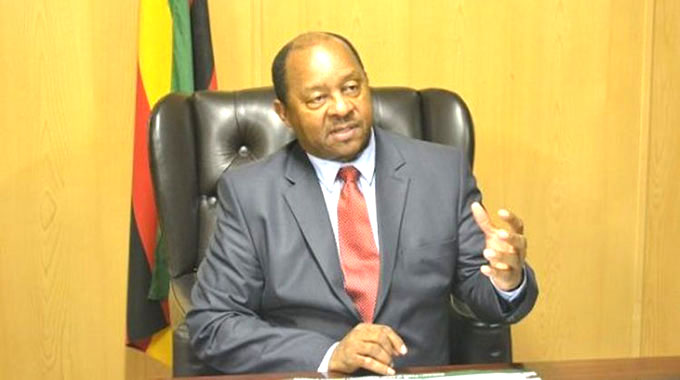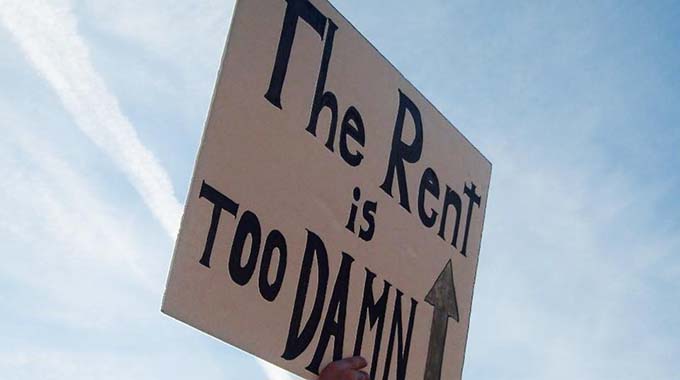When artistes become men of cloth

Nyore Madzianike Senior Lifestyle Writer
AS the front man for the Fishers of Men band, percussionist and lead vocalist Pastor Charles Charamba carved an image of a gospel music icon that also earned him and his wife the title “First Family of Gospel Music”. The Fishers of Men’s success grew with each passing studio album recording they released which also saw them commanding a huge fan base.
With the success of his albums, spanning across decades, Pastor Charamba’s fame continued to grow with each passing year.
But later in the decade, Pastor Charamba, who was a bona fide Apostolic Faith Mission (AFM) church member and seasoned preacher, found a new calling in ministering.
He literally scaled down on his music, formed a church — Rooted in Christ Ministries — where he is now committing most of his time.
His decision to go into full-time ministering cast serious doubts on the legion of his followers on whether he would one day return into the studio or he had joined the version of the country’s sprouting designer suit wearing “Men of God” bent on preaching the gospel of prosperity.
Many unanswered questions were also left dangling on the lips of many as to whether Pastor Charamba’s decision was a true calling by the Word or he spotted a fountain of “dinheiro” in the church.
Testimonies have it that Pastor Charamba is not only the entertainer or musician, to say the least, who left the stage chasing the “greenback” under the auspices of preaching the word of God.
Of course, some achieved.
But some have received a backlash from the worshipping communities in which they would have attempted their luck and at times ended with battered egos after their riches hunting ventures have been exposed.
Sometime in 2012, maybe after running out of steam on the music scene, King Pharaoh, born Pharaoh Marumbe, announced his retirement from the stage saying he wanted to spend time with fellow congregants at an apostolic church shrine in Glen Norah, Harare.
King Pharaoh, then, publicly admitted that his survival was hinged on worshipping at the shrine.
By then, he was into cross-border trading and he was believed to have been forced to attend church services at the shrine to receive “prayers to boost his business.”
Interestingly, after amassing some dollars from cross-border trading, King Pharaoh was back in the studio and later released an album.
He was never seen back again at the shrine, reports said.
Mutare-based singer, Hosiah Chipanga, also realised that he was fast fading in the music industry and tried his luck in church.
The outspoken musician formed Messiah Apostolic Prophetically Inspired People’s Institution (MAPIPI), which was described by many as a money-spinning project.
Unfortunately, Chipanga’s institution failed to get the attention of high-heeled worshippers, leaving the church suffering a still birth.
He was then sent off into farming!
As if it was not enough, the society began to question Chipanga’s faculties because of his enterprises.
Gospel diva, Ivy Kombo sacrificed the Nguva Yakwana Gospel Concert some 14 years ago and chased some doubloons in the diaspora where she established a number of churches along with her husband Bishop Admire Kasi.
Although she also grabbed the opportunity to pursue her studies, Ivy Kombo now boast of a number of churches she has set up abroad with her husband with reports of planning to open others in African countries.
At least she achieved something from her adventure.
A once celebrated radio and television personality, Tichafa “Tich Mataz” Matambanadzo, wrote a piece of a comic episode that featured Prophet Sanyangore, when he claimed to have directly talked to God over his smart phone.
Mataz claimed to have taken direct orders from the Man from above, turning himself into a prophet before a congregation led by another self-styled and controversial “man of cloth” — Prophet Sanyangore.
At the heart of that epic episode, Mataz was faced with a cocktail of lies and deceit, acts of criminality that earned him prosecution at the courts of law and a mixed tale of fraudulent behaviours he accrued during his stint with South African airwaves back in the 1990s.
Upon hearing news that the man behind the smooth, velvety voice which once electrified local airwaves, had turned into a prophet, many a people across the breadth and length of the nation were quick to brush it off as fake.
Mataz was described as a “monger” that wanted to cast his nets into the pockets of innocent worshippers.
The once revered disc jockey was taken as a joke that later exposed his “counterpart”, prophet Sanyangore.
Presenter Oscar Pambuka also pulled a shocker on social media when he woke up one morning announcing that he was now a prophet.
To those who found the news a bitter pill to swallow, at least they got something to laugh about despite prophet Pambuka saying on his Facebook page:
“No retreat no surrender”.
He added: “It’s amazing how today’s people associate the church with money. So and so is now ministering the word of God, the quickest response you get is, he or she is looking for money.
“So and so is doing God’s work, the quickest response is poverty has taken its toll — akwangwaya. So and so is doing God’s work, the quickest response is — akaromba.
“The kingdom of God is not about making money as most people think or indulging in greed and self-gain.
“God does not need any money from you for He is the Maker of all. All the silver and gold is His and the church is not a foundation for self-aggrandisement but for winning souls and proclaiming God’s will.”
Pambuka, who also had a brush with the law leading to his prosecution at the courts of law, left many people questioning his establishment and whether he is sincere considering his questionable background.
Considering his utterances he recently made on radio about marijuana consumption and that he is usually spotted with Zimdancehall artistes in Mbare, will Pambuka stand his actions?
Prophet Tapiwa Freddie is another testimony of a musician-cum-actor who turned himself into a prophet.
Word had it that prophet T Freddie started off as a musician with a passion in acting before he established his Glen View-located church.
“As an artiste myself, I’m here to support a colleague in the music industry. I started singing when I was doing Form Five (Lower Sixth). I was helped and sponsored by my former principal at school,” said prophet Freddie during Baba Harare’s album launch held recently in Harare.
Prophet Freddie has done some collaborations with various artistes with his latest being a video which featured Jiti singer Baba Harare.










Comments